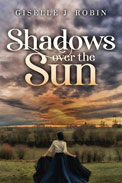
 |
In this compelling autobiography, author Robin recounts her widely varied life, beginning in Nazi Germany and ending halfway around the world in modern Australia. Born in the mid-1930s, Robin witnessed the rise of Nazism and endured the privations of the war. Her diligent studies were rewarded with a civil service position after the war, a rarity for women. In the 1960s, she married a Hungarian, and they emigrated to Australia, where the couple established an organic winery—the first one in Australia. After the marriage ended, Robin faced what would become for her a lifelong struggle with bipolar disorder, involving medication, hospital stays, and the stigma associated with the condition. Despite these setbacks, she persisted, owning two small businesses, reconnecting with family, and pursuing her passion for learning and spiritual seeking.
The book's title describes the narrative's interplay of success and tragedy, joy and heartbreak, and dark and light moments in the author's life. Early chapters show through a child's perspective and everyday, relatable detail what life was like during the 1930s and 40s: evading Allied bombers, gathering berries in forests, and wondering about the stars pinned to Jews' clothing. Robin is unsentimental and straightforward about her struggles, not lingering over subjective experiences of loss and mental illness, but rather detailing the steps she took to move forward. Her early training in public administration comes into play through a view of life as a series of problems to be solved and challenges overcome. In some detail, Robin describes the various homes she lived in over the years, their layouts, locations, neighbors, landscapes, and the improvements she made to them. Indeed, her story shows that home is not found in a nation or a building. Rather, home is discovered in the active and ongoing perseverance to create it for oneself.